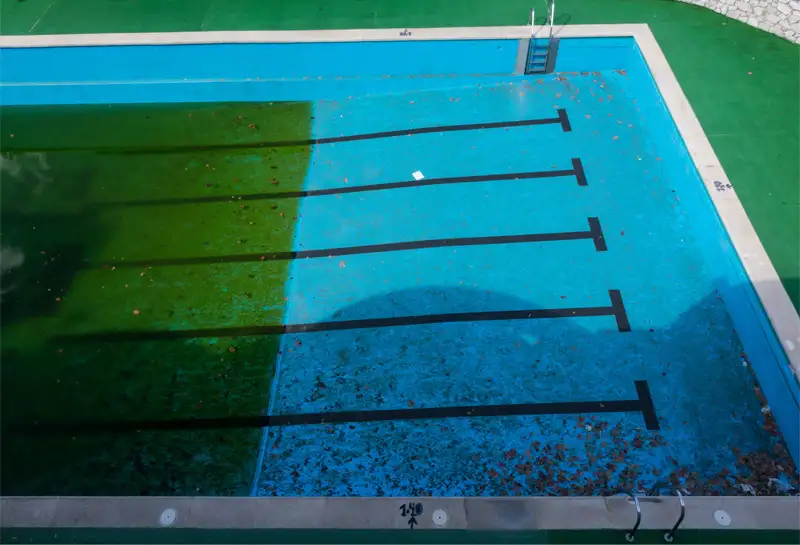

1. Green Pool Algae Invasion:
Algae, the uninvited green guest of every pool party, can quickly turn your pristine water into a murky green pool mess. Regular chlorine treatments may not be sufficient to combat stubborn algae blooms, necessitating the need for a pool shock to eliminate the problem at its root.
2. Chlorine Depletion:
Continuous use of chlorine to sanitize your pool can lead to chlorine depletion over time. A pool shock helps to restore the chlorine balance, ensuring that your pool remains a safe and bacteria free environment for swimmers.
3. Shock Treatment for Bather Waste:
Your pool is a gathering place for friends and family, and with them comes a range of contaminants from lotions, sweat and other bodily fluids. These contaminants can overpower regular chlorine levels, making a shock treatment essential to neutralize any potential health hazards.
4. Persistent Odors:
If your pool is emitting an unpleasant odor, chances are there is a buildup of organic matter. A pool shock can break down these compounds and eliminate any unwanted smells, leaving your pool smelling fresh and inviting.
Now that we understand why a pool shock is necessary, let’s dive into the nitty gritty of the process.
1. Choose the Right Shock:
There are various types of pool shocks available, including chlorine based shocks and non chlorine shocks. The choice depends on your pool’s specific needs and your preference. Consult with a pool professional or refer to your pool’s manual for guidance.
2. Test and Balance:
Before adding any shock treatment, it’s crucial to test and balance your pool water. Adjust the pH, alkalinity and calcium hardness levels to ensure optimal shock effectiveness.
3. Calculate the Shock Dosage:
Determine the appropriate amount of shock needed based on your pool size and the shock product’s instructions. Avoid over shocking, as this can lead to other issues.
4. Apply the Shock:
Distribute the shock evenly across the pool surface, preferably in the evening or at night. This allows the shock to work without interference from sunlight.
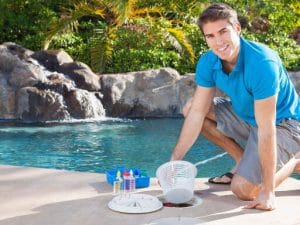
While shocking your pool is a task many pool owners can handle, there’s undeniable peace of mind that comes with professional assistance. Gold Coast Pool Cleaning brings expertise, efficiency and a commitment to quality pool maintenance.
1. Expert Assessment:
Gold Coast Pool Cleaning begins with a thorough assessment of your pool’s condition, identifying specific issues that may require targeted shock treatment.
2. Customised Solutions:
Tailoring shock treatments to your pool’s unique needs, Gold Coast Pool Cleaning ensures that your pool water is not just clean but also perfectly balanced.
3. Timely and Reliable:
With a commitment to timely service, Gold Coast Pool Cleaning ensures that your pool shock is carried out promptly, minimizing downtime and maximizing your pool enjoyment.
Conclusion:
Shocking your pool is not just a reactive measure; it’s a proactive approach to maintaining a pristine and safe swimming environment. With the right knowledge, tools and, if needed, the assistance of professionals like Gold Coast Pool Cleaning, your pool can remain the refreshing haven you’ve always envisioned. So dive in and let the shock treatment revitalise your pool for a summer of endless enjoyment.
Contact us and we will get back to you with a price for a Pool Shock Service which will include, the supply of all Pool Shock Chemicals dependent on the size of your pool, water balancing tests, cleaning if necessary and tuning of the system. Fill in the details below for your no obligation free quote or alternately call us on 07 5619 8000
Pool Shock is a powerful pool water treatment that helps maintain water clarity, sanitation and hygiene by eliminating bacteria, algae and contaminants. It is typically in granular or liquid form and contains high levels of chlorine or non chlorine oxidizers.
Regular pool shock treatments are essential to prevent the growth of algae, bacteria and other microorganisms in the pool water. It helps maintain water balance and keeps the pool safe and comfortable for swimmers.
The frequency of pool shock treatments depends on various factors, including pool usage, weather conditions and water quality. As a general guideline, shocking the pool every 1-2 weeks is recommended, but more frequent shocks may be necessary under certain circumstances.
It is advisable to wait until the chlorine levels return to a safe range before swimming. This typically takes a few hours, but always check the product instructions for specific guidance. Some shock treatments may have different waiting periods.
Follow the manufacturer’s instructions on the product packaging. In general, you can broadcast the shock directly into the pool water or pre dissolve it in a bucket of water before adding it to the pool. Always wear appropriate safety gear, such as gloves and eye protection, when handling pool shock.
Pool Shock is suitable for various pool types, including in-ground and above-ground pools. However, it’s essential to check the product label to ensure compatibility with your specific pool type and surface material.
Yes, there is a difference. Chlorine based shock contains chlorine as the active ingredient, while non chlorine shock typically uses potassium peroxymonosulfate or another non chlorine oxidizer. The choice depends on individual preferences, pool conditions and the need for chlorine free options.
While pool shock is a powerful sanitiser, it is not intended for continuous use as a primary sanitiser. It is best used periodically to boost chlorine levels and eliminate contaminants. A regular sanitiser, like chlorine tablets or a salt chlorinator, should be used to maintain consistent disinfection.
Yes, pool shock is commonly used during pool opening and closing procedures. It helps start the season with a clean and well balanced pool and ensures proper winterisation by eliminating contaminants before closing.
Store pool shock in a cool, dry place away from direct sunlight and moisture. Follow the manufacturer’s guidelines for proper storage, as improper storage can affect the effectiveness of the product over time.
Pool shock is not recommended for use in hot tubs or spas. It is designed for larger volumes of water typically found in pools. Using the appropriate spa shock or oxidizer is recommended for smaller water volumes.
Always follow safety guidelines provided on the product label. Wear protective gear, avoid mixing different pool chemicals, and keep shock treatments out of reach of children. If in doubt, consult with a pool professional such as Gold Coast Pool Cleaning for advice.
Some pool shocks are specifically formulated for saltwater pools, but it’s crucial to check the product label to ensure compatibility. Using the wrong type of shock can potentially harm the salt cell or affect water balance.
Super shock products usually contain a higher concentration of active ingredients, making them more potent for tackling severe water issues. Regular shock is suitable for routine maintenance, while super shock is reserved for challenging situations like algae outbreaks or high contamination levels.
Signs that your pool may need shock treatment include cloudy water, unpleasant odors, visible algae or an increased demand for regular sanitiser. Regular water testing can also help identify the need for shock treatment based on chlorine levels and water chemistry.
It is generally recommended to shock the pool in the evening or at night to allow the treatment to work without interference from sunlight. Sunlight can diminish the effectiveness of chlorine based shocks. However, always follow the specific instructions on the product packaging.
While pool shock primarily focuses on sanitising and oxidizing, it may help lighten certain stains. For specific stain removal, consider using a stain removing product or consult with a pool professional for tailored advice.
Yes, for those who prefer non chlorine options, there are shock treatments available that use alternative oxidizers like potassium peroxymonosulfate. These are suitable for pools where chlorine is not the primary sanitizer.
The waiting period after using algaecide in conjunction with pool shock can vary. Follow the recommendations on the algaecide and shock treatment labels. In most cases, waiting a day before swimming is advisable.
Pool shock is not recommended for use in small inflatable or kiddie pools. The concentration of chemicals may be too high for the smaller water volume. Instead, consider using appropriate sanitising methods designed for such pools.
Yes, using pool shock during the winter months can help prevent algae growth and maintain water clarity. However, it’s essential to follow winterisation procedures and consult with a pool professional such as Gold Coast Pool Cleaning for guidance on shock treatment during the off season.
Yes, but exercise caution. Some pool shocks may contain ingredients that could potentially damage vinyl liners. Look for a shock specifically labeled as safe for vinyl liners, or consult with your pool supplier to find a suitable product.
If you’ve accidentally added too much pool shock, dilute the concentration by adding additional water to the pool. Run the filtration system for an extended period to help disperse the excess shock. Regularly test the water and adjust the chemical levels as needed.
Yes, but be cautious. Some pool shocks can affect the salt levels in the pool, impacting the performance of a salt chlorinator. Choose a shock specifically designed for saltwater pools and consult your chlorinator’s manufacturer for compatibility.
Yes, there is a difference. Shock primarily focuses on sanitising and oxidizing the water, whereas algaecide is specifically formulated to prevent and control algae growth. While shock may help eliminate existing algae, algaecide is more targeted for prevention.
Yes, in some cases. Pool shock can help alleviate foaming caused by organic contaminants. However, it’s essential to identify and address the root cause of foaming, such as excess oils or detergents, for a more effective solution.
No, pool shock is not intended to be a primary sanitiser for continuous use. It is best used periodically to boost chlorine levels. For routine sanitisation, use appropriate chlorine tablets, liquid chlorine or other recommended sanitising methods.
Yes, pool shock can be used in pools with heaters. However, it’s advisable to wait until the shock treatment is complete and chlorine levels have returned to normal before turning the heater back on to avoid potential damage to the heater components.
Follow local regulations for chemical disposal. Generally, contact your local waste disposal facility or hazardous waste collection center for guidance on proper disposal methods for expired or unused pool shock.
While shock treatments may affect pH levels temporarily, they are not designed for long term pH control. Regularly test and adjust the pH separately using appropriate chemicals to ensure proper water balance.
These FAQs provide a general overview of Pool Shock and its usage. For specific guidance, always refer to the product label and instructions from the manufacturer.


Unveiling the Green Menace: A Comprehensive Guide to Understanding and Combatting Pool Algae.
Imagine stepping into your backyard oasis, ready to take a refreshing dip in your crystal clear swimming pool, only to be met with an unsightly green hue covering the water’s surface. The culprit? Pool algae a common, yet persistent problem that can turn your dreamy pool day into a nightmare. In this comprehensive guide, we will look into the world of pool algae, exploring its types, causes, prevention and effective treatment methods.
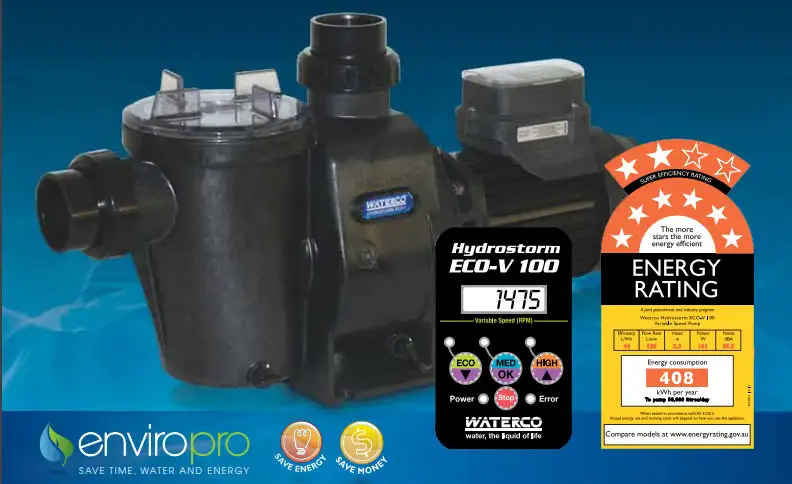
Comparing Eco Variable Speed Pool Pumps vs Single Speed.
Maintaining a crystal clear swimming pool requires careful consideration of the equipment you use. One crucial component in this regard is the pool pump, which plays a pivotal role in circulating water and keeping your pool clean. When it comes to pool pumps, two popular choices are Eco Variable Speed Pool Pumps and Single Speed Pool Pumps. In this in depth article, we will explore how these pumps work, analyse whether they are worth the investment, compare their running costs and shed light on how Gold Coast Pool Cleaning can professionally convert your system.
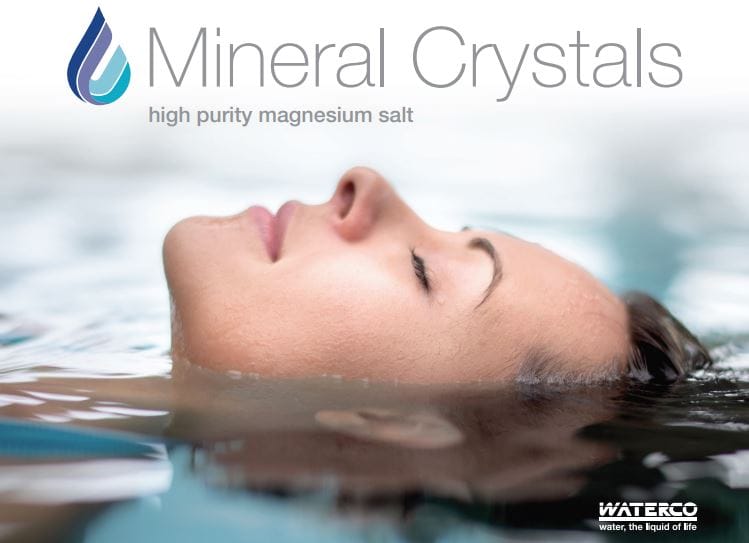
The Complete Guide to Magnesium Mineral Pools: Transform Your Oasis with Gold Coast Pool Cleaning. In the realm of pool wellness, there’s a rising star that promises not just a refreshing dip but a rejuvenating experience, the magnesium mineral pool. As awareness of the health benefits of magnesium grows, more pool owners are considering the switch from traditional chlorine based pools to the marvel of magnesium. In this comprehensive guide, we’ll delve into everything you need to know about magnesium mineral pools, why this transformation is worth considering and how Gold Coast Pool Cleaning can professionally convert your pool into a magnesium oasis.

Unveiling the Power of Pool Shock: A Comprehensive Guide to Pool Maintenance.
A crystal-clear pool is the epitome of summer bliss, but maintaining that sparkling oasis requires more than just routine cleaning. Enter the secret weapon in every pool owner’s arsenal the pool shock. In this guide, we’ll delve into the reasons why your pool might need a good shock, what it entails and how Gold Coast Pool Cleaning can professionally elevate your pool maintenance game.
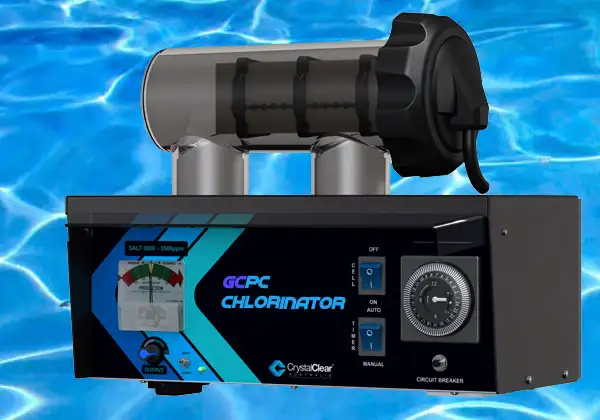
When it comes to choosing the perfect swimming pool for your backyard oasis, the decision between a traditional chlorine pool and a saltwater pool is often at the forefront. While both options have their merits, there’s a growing trend towards saltwater pools for several compelling reasons. Here, we’ll explore the numerous benefits that make saltwater pools an attractive choice for those seeking a refreshing and eco friendly swimming experience.
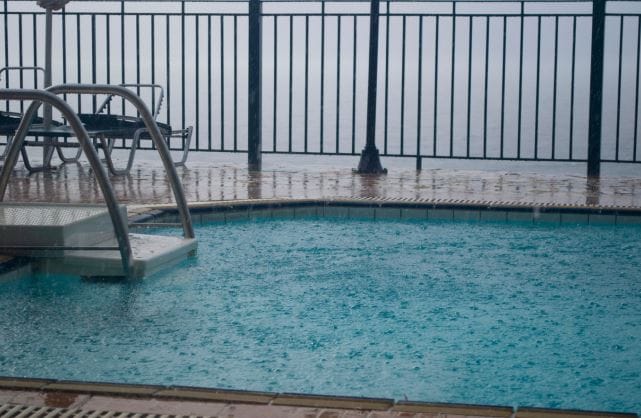
Discover the aftermath of unprecedented storms in Queensland’s Gold Coast, where power outages wreak havoc not just on homes but also impact swimming pools. Prolonged power loss disrupts essential pool systems, rendering pumps idle and chlorinators inactive. Heavy rainfall, reaching up to 300mm in 12 hours, further compounds issues by introducing debris and diluting chemical balances. Gold Coast Pool Cleaning emerges as a lifeline, offering emergency cleanup, precise water testing, equipment inspections, and algae treatments. Beyond recovery, proactive maintenance tips ensure your pool remains a safe oasis amidst the chaos. Trust Gold Coast Pool Cleaning for a swift, effective pool recovery post-storm.
One Response